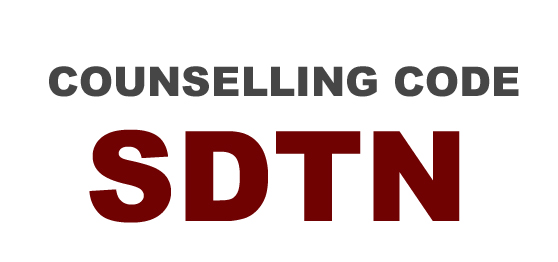
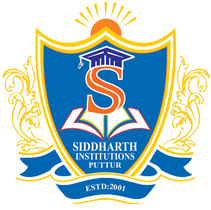

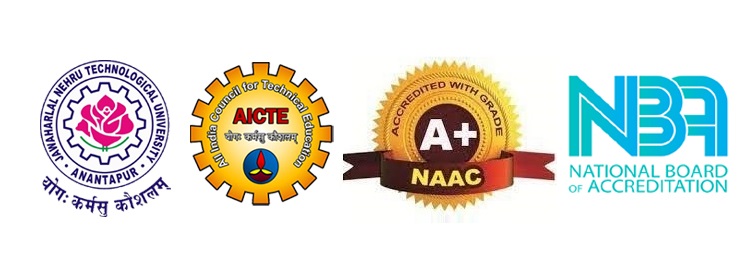








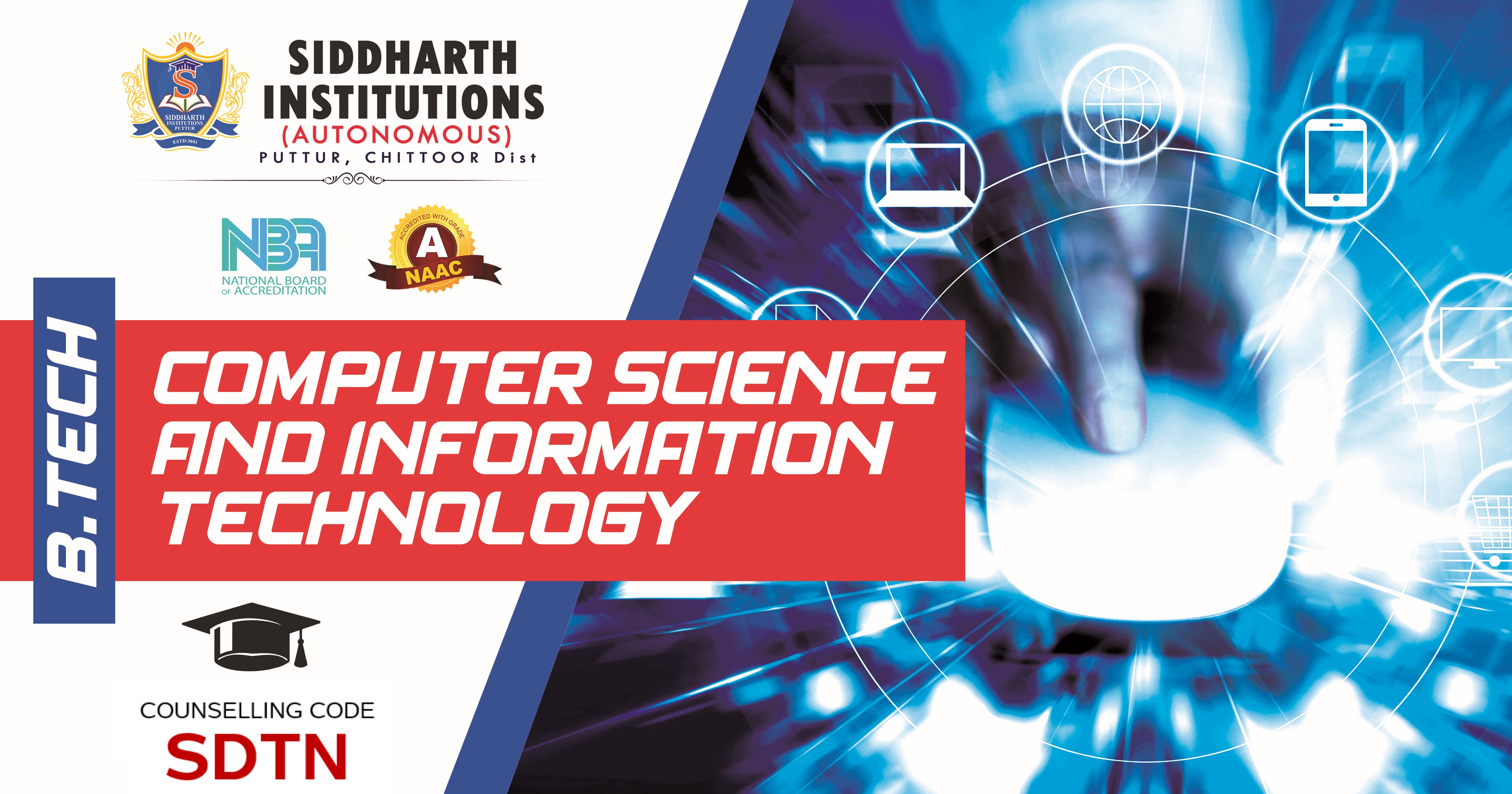
The B.Tech. in CSIT is a broad and flexible degree program with the curriculum explicitly planned to reflect the complexity and coverage of computer science and information technology. It is the study of various aspects of computer to meet the requirements of the various industries and society. The course contains eminent procedures for processing, the application of statistical and mathematical methods to decision-making, and the simulation of higher-order thinking through computer programs. It includes study of the basic computer sciences and its application, as well as the detailed study of the various aspects of its working. Proficient members from Academia and Industry provide inputs in introducing specialized courses in the curriculum to suit industry needs. The four-year course that lead to a degree in B.Tech (CSIT), adopt a University-mandated semester system of 8 semesters.
The Department of Computer Science and Information Technology was established in the year 2017 with an intake of 60. Currently four batches are running successfully joined in 2017-18,2018-19,2019-20 and 2020-21. The department is updating the curriculum according to the industry and societal needs. Presently the department is having R16, R18, R19 and R20 Regulations and curriculum with Autonomous status. The department is having top ranked students with better attitude and knowledge. The department is having eminent faculty from the reputed universities, modern computer labs with highly configured systems and latest software’s.
The Program Educational Objectives of the CSIT are:
PEO1: Graduates able to help solve industry's technological problems as Engineering Professionals.The following are the program outcomes of Engineering Graduates:
PO1: Engineering knowledge: Apply the knowledge of mathematics, science, engineering fundamentals, and an engineering specialization to the solution of complex engineering problems.The following are the Program Specific Outcomes of Engineering Graduate:
PSO1: Graduates able to Design, analyze and develop solutions to engineering problems in the field of Information Technology.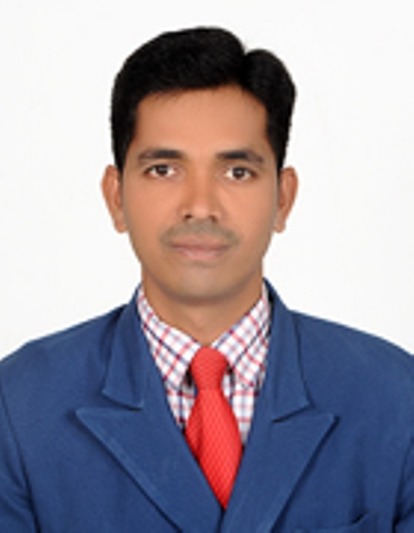
| S.No | Member Name | Designation / Organization | Role of Bos | Category of Nomination |
|---|---|---|---|---|
| 1 | Mr. B. Rajakumar | Assistant Professor & HOD | Chairman | Head of the Department |
| 2 | Mr. CH Sivasankar | Assistant Professor | Member | Faculty Members of each Specialization in the Department |
| 3 | Mrs.D.Viswasahitya | Assistant Professor | Member | |
| 4 | Mr.T Sundararajulu | Assistant Professor | Member | |
| 5 | Mrs.N Anitha | Assistant Professor | Member | ,|
| 6 | Dr. Ch. Sudhakar | Associate Professor, CSE Department National Institute of Technology Warangal | Member | Subject Experts Nominated by the AC |
| 7 | Dr. D. Rajyalakshmi | Professor,Department of Computer Science & Engineering, University College of Engineering Vizianagaram JNTUK | Member | |
| 8 | Dr.P.Chenna Reddy | Professor, Department of Computer Science & Engineering,JNTUA College of Engineering,Ananthapuramu. | Member | Subject Expert Nominated by VC |
| 9 | Mr.D.Sriramdeshpande | Senior Project Engineer, Smart Enovation India Limited, Bangalore, Karnataka. | Member | Representative from Industry |
| 10 | V. Arun Kumar | Technical Lead, HCL Technologies, Chennai. | Member | Alumni (PG) Nominated by the Principal |
A good teacher can inspire hope, ignite the imagination, and instill a love of learning
| S.No | Name of the Faculty | Designation | Date of Joining | Qualification | Nature of Association | Profiles |
|---|---|---|---|---|---|---|
| 1 | BHUKYA RAJAKUMAR | Assitant Professor & HOD | 03-08-2020 | M.Tech, (Ph.D) | Regular | Profile |
| 2 | NEELAM POORNIMA | Assitant Professor | 08-07-2019 | M.Tech. | Regular | Profile |
| 3 | Mr. SIVASANKAR CHITTOORR | Assitant Professor | 05-08-2021 | M.Tech. | Regular | Profile |
| 4 | P.GOPINATH | Assitant Professor | 02-07-2018 | M.Tech. | Regular | Profile |
| 5 | DAKSHIRAJU VISWASAHITHYA M | Assitant Professor | 05-08-2020 | M.Tech. | Regular | Profile |
| 6 | THIRUPATHI SUNDARARAJULU | Assitant Professor | 03-08-2020 | M.Tech. | Regular | Profile |
| 7 | M. RAM KUMAR | Assitant Professor | 03-07-2023 | M.Tech. | Regular | Profile |
| 8 | SYED JASMIN | Assitant Professor | 30-09-2023 | M.Tech. | Regular | Profile |
| 9 | N.ANITHA | Assitant Professor | 02-07-2024 | M.Tech. | Regular | Profile |
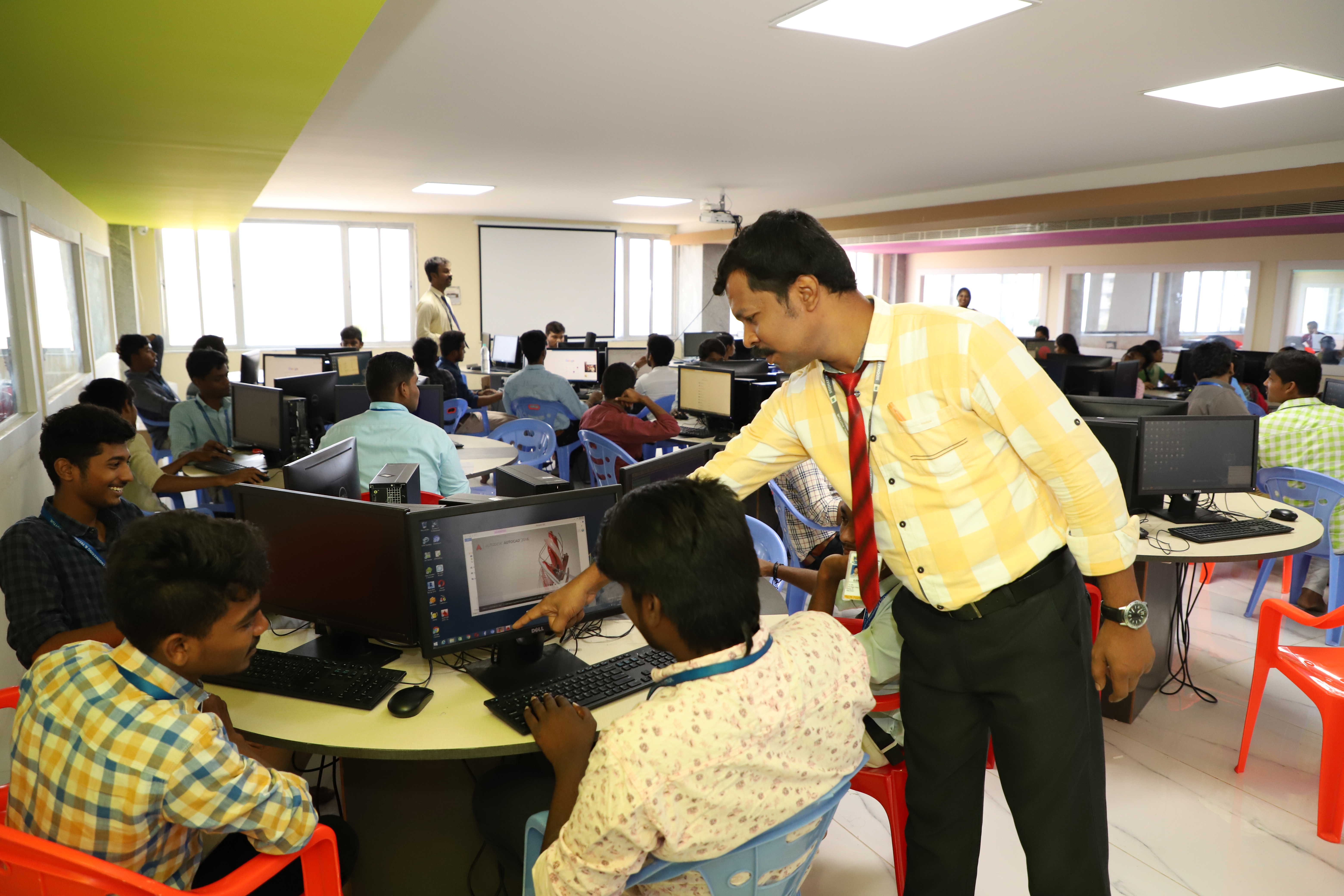
The objective of this lab are to make the student to learn programming languages such as C++&JAVA. Students get trained in IBM Rational Rose for Object Oriented Analysis and Design(OOAD). Students are also trained in Design Patterns with IBM Rational Rose to solve design problems of the software development.
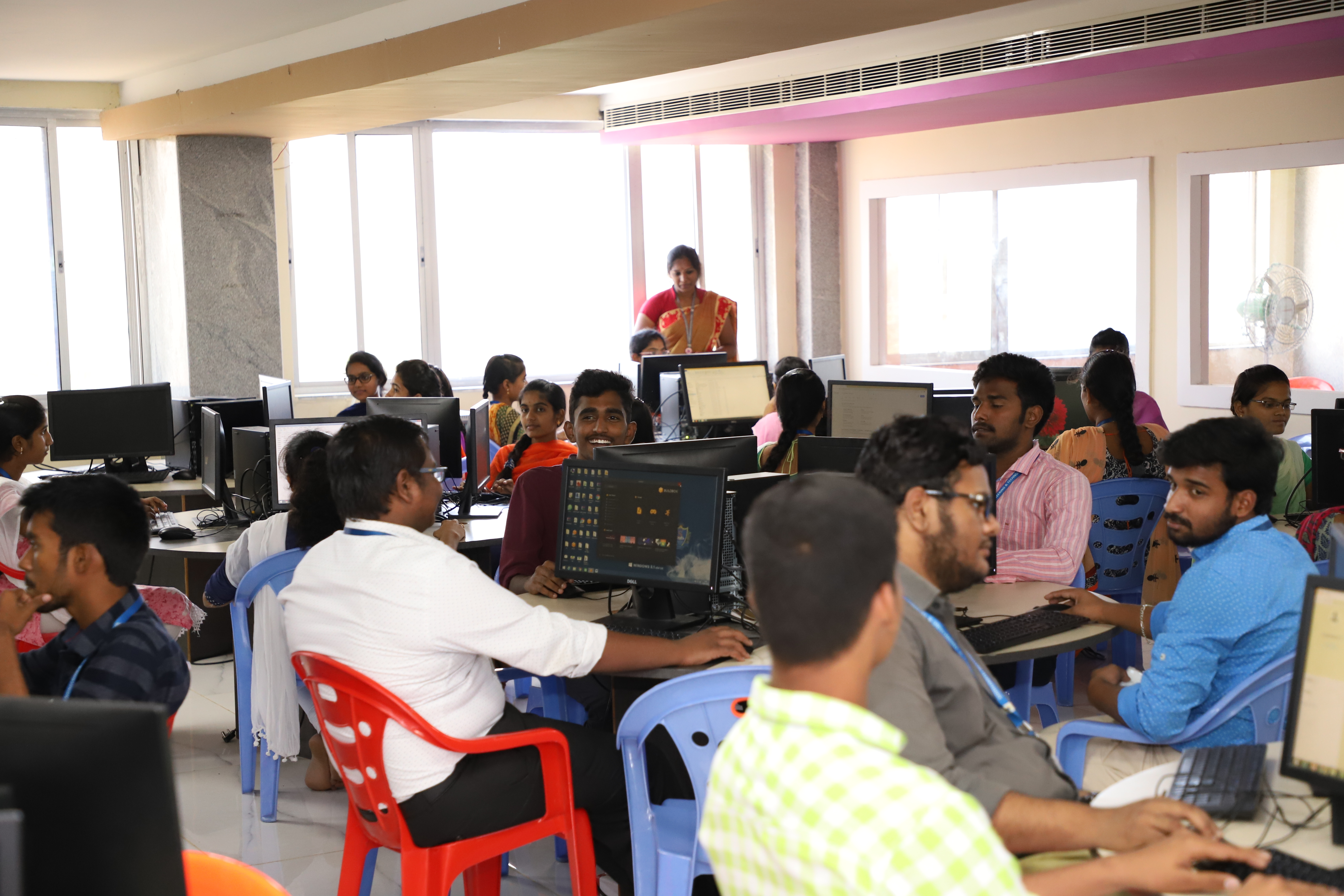
The objective of this lab is to train the students on PC Hardware, Internet and Productivity tools including Word, Excel, Power Point and Publisher. PC Hardware introduces the students to a personal computer and its basic peripherals, installation of system software like MS Windows, Linux and the required device drivers.
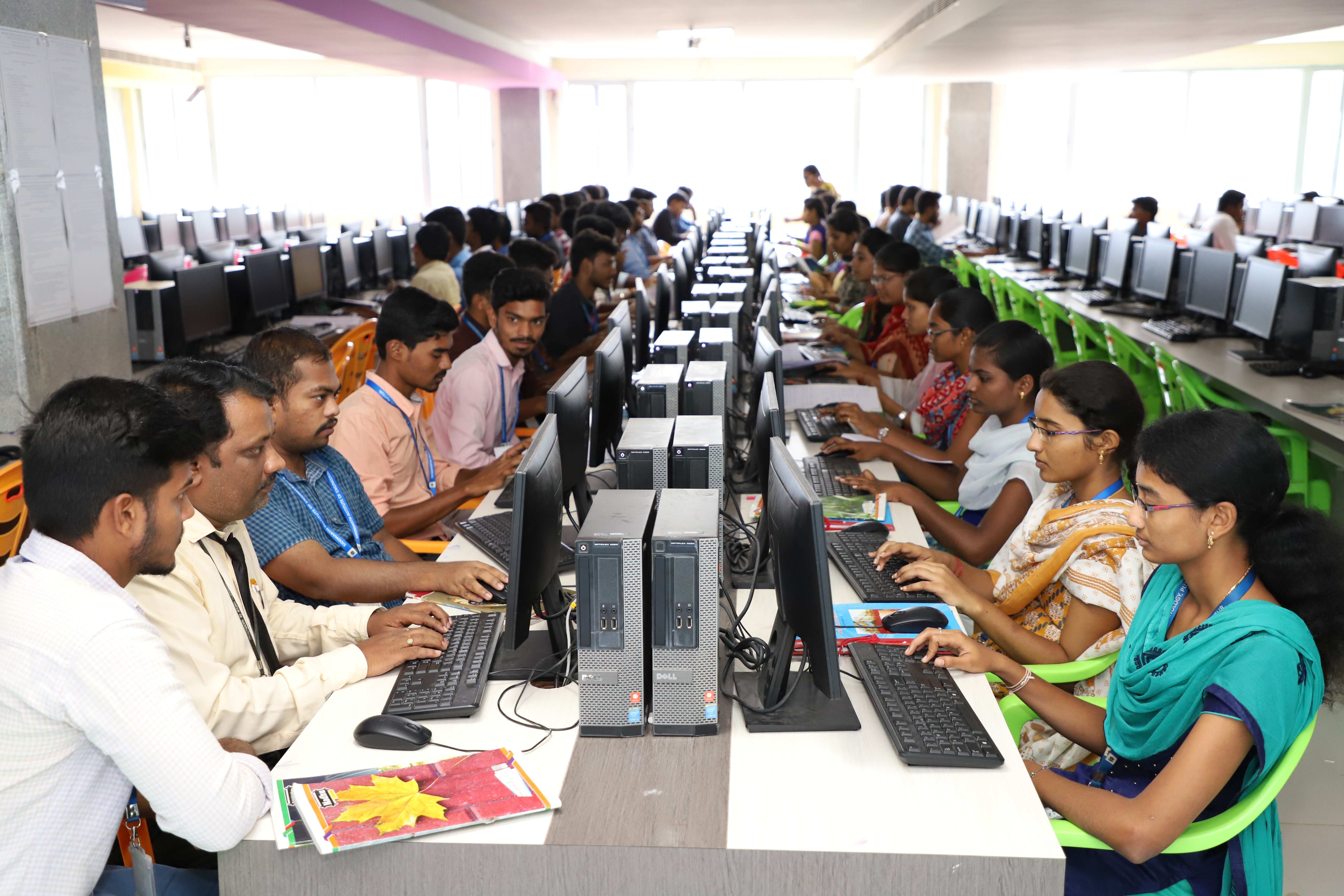
The objective of this lab is to provide training to students in implementations of Compiler Design & Operating system concepts. This lab also facilitates the students to get trained in Unix Operating system, Shell programming and Networking concepts.
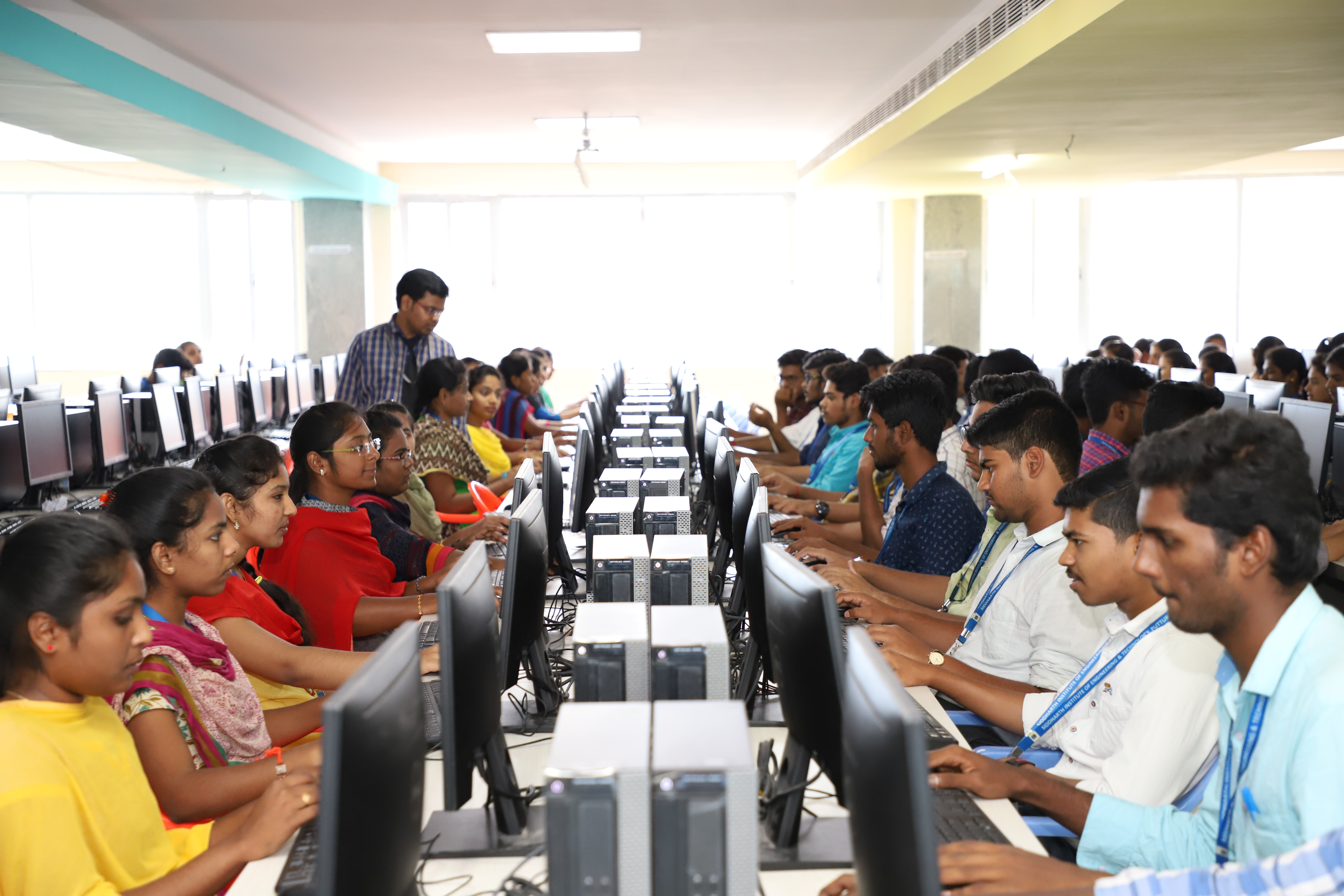
The objective of this lab is to provide a strong formal foundation in database concepts and practice with the technologies Oracle and MYSQL.
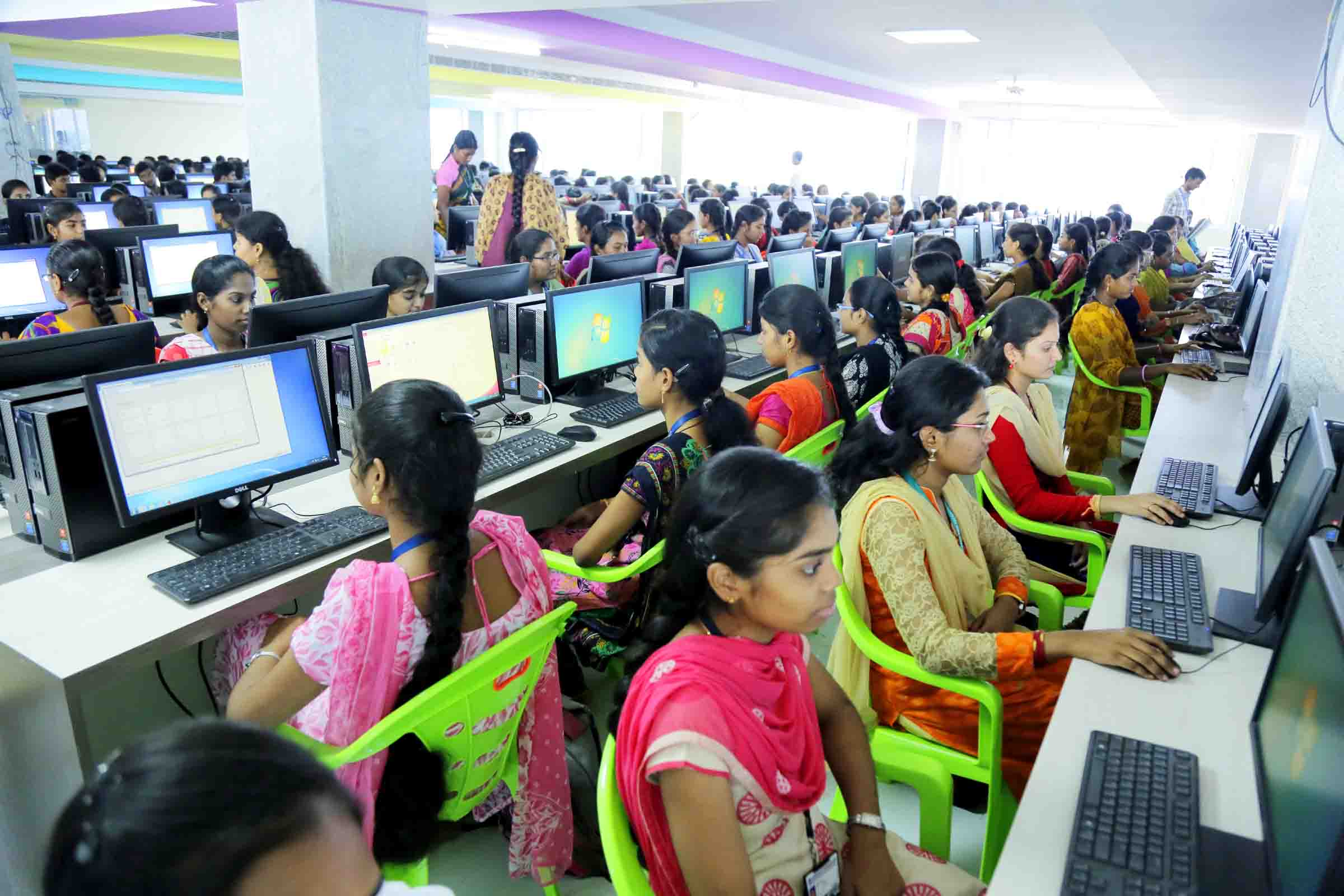
The objective of this lab is to train students with JSP, Java Script, and JDBC. In this lab, students can design and implement various Web Applications.
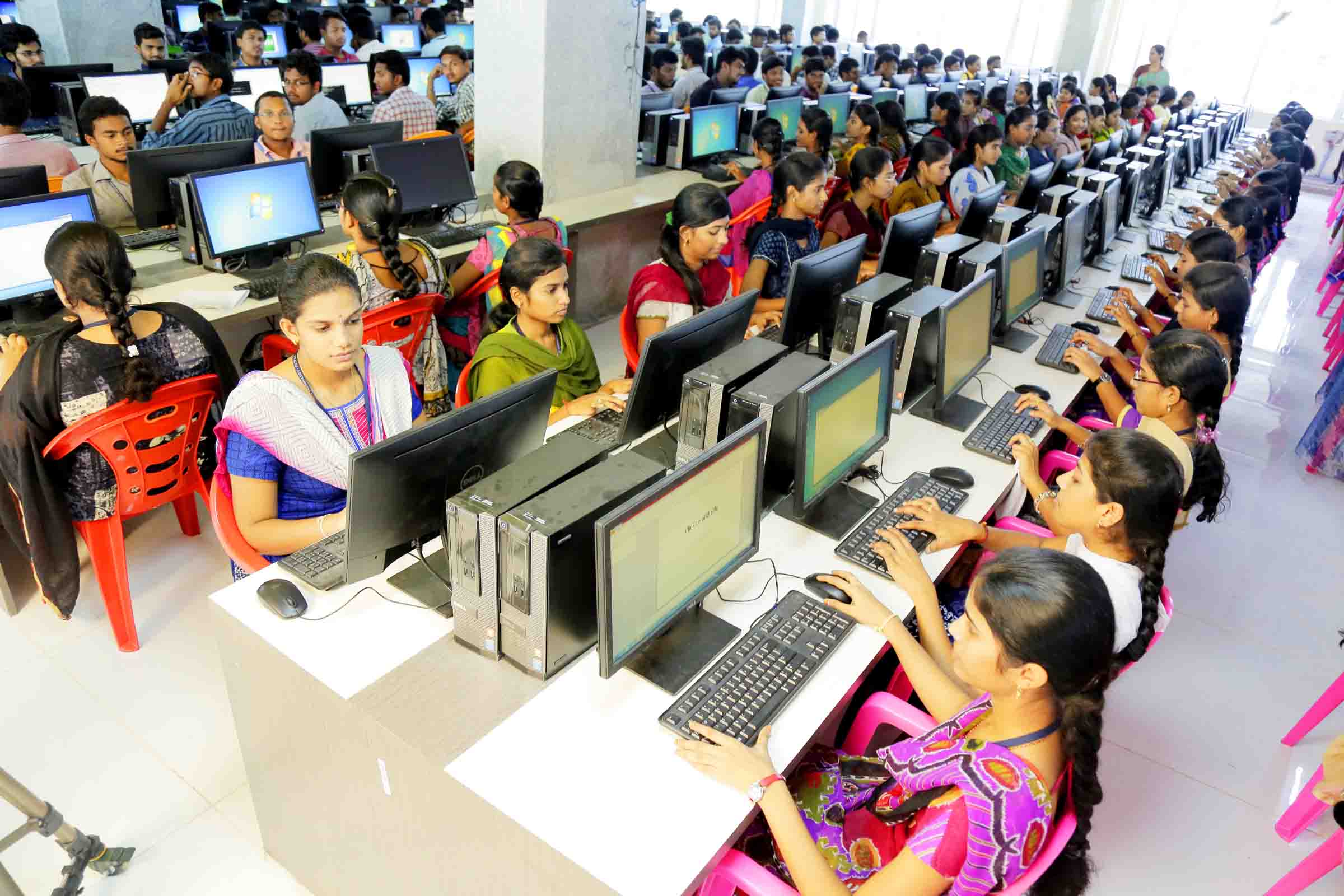
The Objective of this lab is to facilitate the students with J2ME and Android. In this lab, students can design and implement various Mobile Applications.
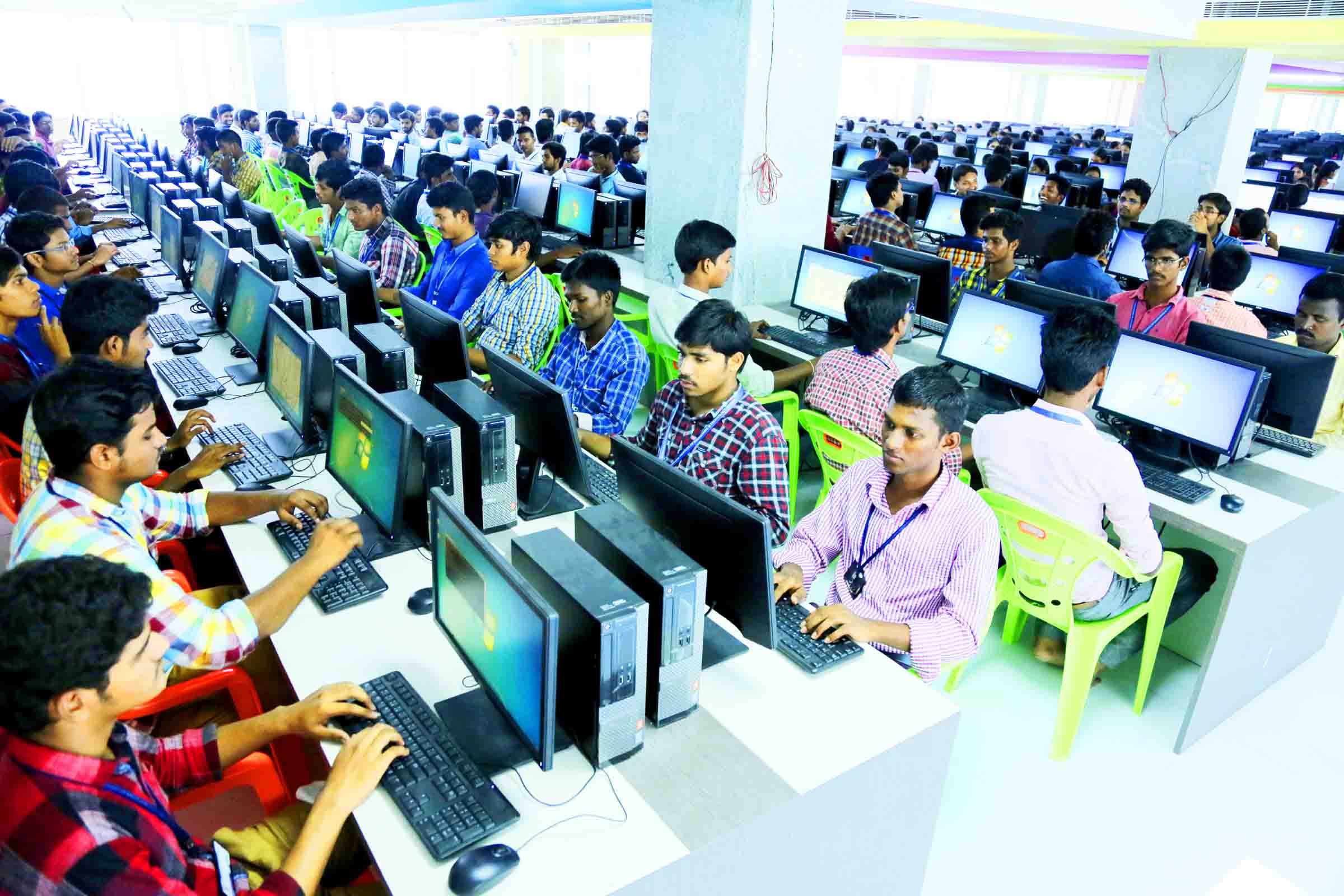
In this lab students will be trained on Data Structures and Advanced Data structures.